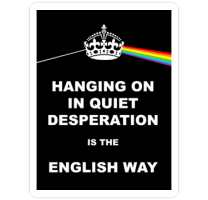April 2, 2015
New study explores link between workplace design and productivity
 The latest report linking specific workplace design elements with increases in productivity and wellbeing has been published by flooring manufacturer Interface and organisational psychologist Cary Cooper. The Human Spaces report into The Global Impact of Biophilic Design in the Workplace, claims that employees who work in environments with natural elements report a 15 percent higher level of well being, are 6 percent more productive and 15 percent more creative overall. The report is based on a study of 7,600 office workers from 16 countries. It concludes that office design is so important to workers that a third (33 percent) of global respondents believe it would ‘unequivocally’ affect their decision whether or not to work somewhere. Design is particularly important in India (67 percent), Indonesia (62 percent) and the Philippines (60 percent).
The latest report linking specific workplace design elements with increases in productivity and wellbeing has been published by flooring manufacturer Interface and organisational psychologist Cary Cooper. The Human Spaces report into The Global Impact of Biophilic Design in the Workplace, claims that employees who work in environments with natural elements report a 15 percent higher level of well being, are 6 percent more productive and 15 percent more creative overall. The report is based on a study of 7,600 office workers from 16 countries. It concludes that office design is so important to workers that a third (33 percent) of global respondents believe it would ‘unequivocally’ affect their decision whether or not to work somewhere. Design is particularly important in India (67 percent), Indonesia (62 percent) and the Philippines (60 percent).

























March 24, 2015
Film: The Japanese workers who withdraw to live in Internet cafes
by Mark Eltringham • Comment, Flexible working, Technology
Japanese workers appear to manifest some of the most extreme reactions to the challenges of modern life. Often these are related to the uncertainties of work and the fracturing of time and space associated with contemporary working life. Two of the most common characteristics of the Japanese response appears to be isolation and exclusion. Recently, the Japanese Government investigated the phenomenon of banishment rooms which some firms are alleged to have used to exclude unwanted employees. There has also been a great deal of talk about hikikomori, those people who lock themselves away from the rest of the world, estimated to be up to 1 percent of the population. Now, a new film from Shiho Fukada tells the story of two Japanese men who have taken to living in Internet cafes as they seek to find their way in life.
(more…)